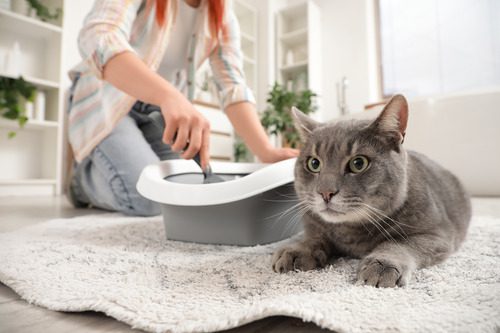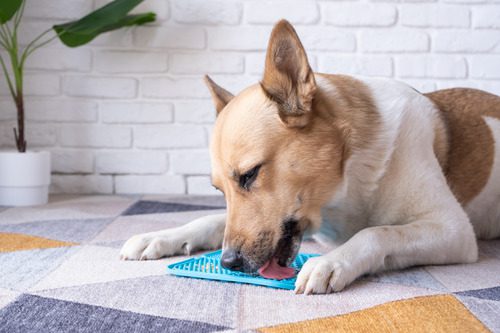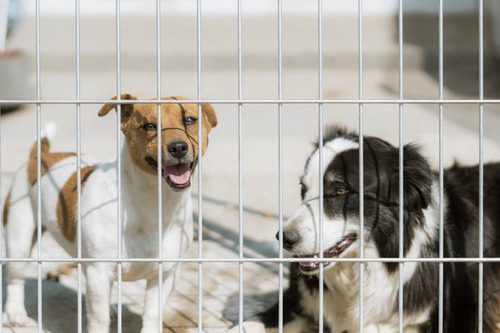Can Dogs Eat Broccoli?
Dogs have one of the strongest olfactory senses in the animal kingdom. With such a strong sense of smell, it is no wonder that they can find food almost anywhere and are willing to eat almost anything that they discover. However, just because they are willing to eat something doesn’t mean it is always safe.
Many dog owners know the common food items to keep away from dogs such as chocolate and raisins. But what about other foods such as broccoli? It is a healthy vegetable so surely it can’t be that bad right? While dogs can gain some health benefits from eating broccoli, there are some things to consider before feeding your dog an endless amount of this green vegetable.
Broccoli and Digestive Issues in Dogs
Some of the biggest concerns with dogs eating broccoli are regarding the amount of broccoli they are eating and how the broccoli is prepared. Dogs are carnivores and the vast majority of their diet should be filled with meat in order for them to have the appropriate amount of protein to stay healthy. Unless there are certain dietary restrictions advised by your veterinarian, a dog should always have an ample amount of protein in their daily food intake.
Broccoli, like any other vegetable, should only make up a small portion of their diet for numerous reasons. Broccoli does provide similar health benefits for dogs as it does for humans, such as an increase in vitamins and fiber.
However, dogs can have too much of a good thing and if they overeat broccoli they may end up with an upset stomach and bloating. A good rule of thumb is to portion out about ten percent of their daily diet in vegetables. Sometimes even when you feed a dog a small amount of broccoli, they may still have a negative reaction. If you notice vomiting or loose stools after your dog eats broccoli, take a break from feeding them broccoli to let their stomach settle.
Can Too Much Broccoli Be Toxic to Dogs?
While a small amount of broccoli is perfectly acceptable as a snack for dogs, too much broccoli can in fact be toxic to dogs. Wondering why? Well, the top part of the broccoli known as the florets contains a compound that when consumed in large amounts can make a dog very sick.
This compound called isothiocyanate can cause severe digestive issues if dogs eat too much broccoli at once. If you think your dog may be having an adverse reaction to broccoli, it is important to contact your veterinarian right away.

How to Prepare Broccoli for Your Dog
When you are making a meal at home and broccoli is one of the ingredients, it can feel tempting to toss your dog a piece while you are cooking. Before you give them a large piece of broccoli, remember that it can be a potential choking hazard. Experts advise cutting the broccoli into smaller bite size pieces to make sure your dog can eat the vegetable safely.
It is also helpful to ease your dog into trying broccoli for the first time. Different dogs may react differently, so starting a new food slowly can be helpful to ensure there aren’t any adverse reactions. Experts advise trying a portion about the size of a tablespoon the first time you offer broccoli to your dog.
As far as whether you need to cook the broccoli, that part doesn’t matter as much. Although if you have an elderly dog or a puppy, it is best to offer them cooked broccoli over raw due to the broccoli softening during the cooking process making it easier to chew for your dog. You can also mix broccoli in with your dog’s regular food for added nutritional value and flavor. When mixing in broccoli in your dog’s food, remember that you can add other safe vegetables too for even more nutritional value. It is important to remember to never give your dog seasoned food, however, because one or more of the seasonings may be toxic to dogs.
Benefits Dogs Receive from Eating Broccoli
Broccoli is one of the more hearty vegetables to add to a dog’s diet as it is high in fiber and numerous different vitamins. Vitamin K is found in broccoli and is great for bone density in dogs as well as keeping their immune system strong and healthy.
Broccoli is also full of a variety of minerals such as sodium, potassium, and magnesium. All of these minerals benefit your dog’s immune system and help to keep them healthy and able to fight off infections.
Vitamin C is another benefit that comes with eating broccoli and it is especially beneficial for aging dogs. Vitamin C provides antioxidants, which is an important role in fighting off things like heart and brain disease in animals.
In recent years, research has emerged about a compound found in plants called sulforaphane. This compound has been proven to help reduce cancer risk and toxins in the body. Sulforaphane is found only in certain vegetables such as broccoli and kale. With all of these added benefits that can be gained from eating broccoli, it can be helpful to incorporate this tasty vegetable into your dog’s diet, as long as it is in small amounts.
The Final Verdict on Dogs Eating Broccoli
Now that you have learned the do’s and don’ts of dogs eating broccoli, you know that the answer is yes, dogs can eat broccoli as long as it is given in moderation. Remember that cutting the broccoli into smaller bites can help prevent choking incidents.
When preparing the broccoli, don’t use any seasoning as some seasonings can be harmful to dogs. Keep in mind that serving cooked broccoli is better for puppies and elderly dogs to help them chew. In regard to portion size, aim for no more than a ¼ cup of broccoli at a time.
With broccoli providing a variety of health benefits to dogs including reducing inflammation and improving eyesight, it can be beneficial to give your dog broccoli as one of their food options. So, the next time you are making stir-fry for dinner, feel free to give your dog a few small pieces of broccoli to let them enjoy.
If you are considering changing up your dog’s diet, contact Best Friends Veterinary Hospital. Our veterinarians can give expert advice based on your pet’s breed, age, and lifestyle. Call us today, or request an appointment online.
Recent Posts
About Best Friends Veterinary Hospital
Our veterinarians and staff warmly welcome dogs, cats, and a variety of exotic pets as patients here at our animal hospital, and we offer a host of services to give your unique family member a lifetime of excellent care.





